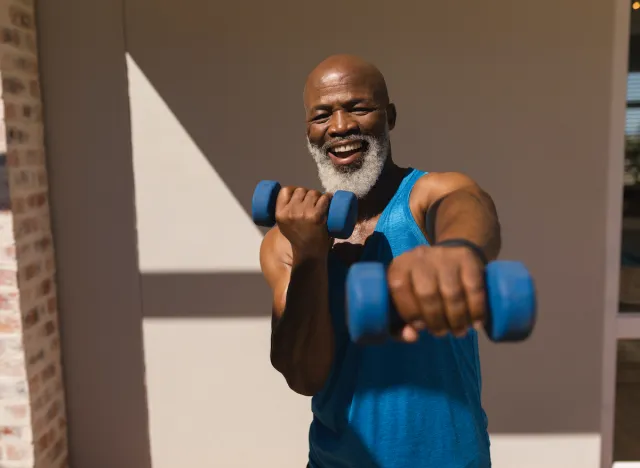When people start their fitness journeys, a key question often arises: How frequently should they work out to see progress? If you’re wondering the same, you’re in the right spot. No matter if your aim is to shed pounds, build lean muscle, or just boost your general health, knowing how often to engage in your exercise regimen is crucial. Finding the perfect frequency not only helps you meet your fitness objectives but also ensures you enjoy a sustainable and pleasant exercise experience.
This piece will delve into the optimal number of workout days needed to observe tangible outcomes. Moreover, we’ll discuss the ideal mix of exercises for those looking to lose weight or build lean muscle. Additionally, we’ll highlight the numerous advantages of consistent physical activity, emphasizing its role in achieving a healthier weight and improved overall health.
So, let’s examine the workout frequency science to chart the course toward substantial and enduring results. Continue reading to enrich your understanding, and don’t miss out on our guide to the 5 Top At-Home Workouts for Shedding Pounds.
How many days a week do you need to exercise for results?


Finding the ultimate balance in your exercise routine is key to achieving optimal results, whether your goal is weight loss, muscle gain, or overall fitness. The number of days you should dedicate to exercise depends on various factors, including your fitness level, goals, and the type of workouts you engage in. According to fitness experts, a general guideline for adults is to aim for at least 150 minutes of moderate-intensity aerobic activity or 75 minutes of vigorous-intensity aerobic activity per week, coupled with muscle-strengthening activities on two or more days a week. This equates to exercising most days of the week, promoting consistency and long-term benefits.
What is the ideal combination of exercise for weight loss and lean muscle gain?


To achieve both weight loss and lean muscle gain, it’s essential to incorporate a well-rounded exercise routine. Cardiovascular exercises, such as running, cycling, or swimming, are effective for burning calories and promoting weight loss. Aim for at least three to five days of moderate to vigorous cardiovascular exercise per week.
Additionally, strength training exercises, including weightlifting or bodyweight exercises, should be integrated into your routine two to three days a week. This helps build and tone muscle, boosting your metabolism and enhancing the overall fat-burning process.
Combining both cardio and strength training creates a powerful synergy that contributes to achieving a lean and fit physique.
How is exercise beneficial for weight loss and boosting one’s overall fitness?


Exercise plays a crucial role in weight loss and overall fitness, offering a myriad of benefits beyond just shedding pounds. Regular physical activity helps create a calorie deficit—essential for weight loss—by burning calories and increasing metabolism. Moreover, exercise promotes the development of lean muscle mass, which not only contributes to a toned appearance but also enhances the body’s ability to burn calories at rest. In addition to weight-related benefits, exercise positively impacts cardiovascular health, reduces the risk of chronic diseases, and improves mental well-being.
On the one hand, engaging in aerobic exercises, such as jogging or cycling, elevates heart rate and improves cardiovascular endurance. Strength training, on the other hand, enhances muscular strength, endurance, and bone density. The combination of both types of exercise creates a comprehensive fitness routine that addresses various aspects of health. Moreover, consistent physical activity has been linked to improved mood, reduced stress, and better sleep quality, contributing to a greater sense of overall well-being.
Frequently Asked Questions (h3)
How many days a week do I need to exercise to see results?
To see noticeable results, it is recommended to exercise at least 3 to 5 days per week. This can vary based on your fitness goals, with strength training recommended at least 2 days a week and cardiovascular exercise on most days for heart health.
Does the type of exercise impact how often I need to work out?
Yes, the type of exercise does impact how often you should work out. For strength training, working out 2 to 3 days per week is suggested, allowing time for muscle recovery between sessions. For cardio-based workouts, aiming for at least 150 minutes of moderate-intensity or 75 minutes of high-intensity exercise per week is recommended, which can be spread out over several days.
Can I exercise every day?
Yes, you can exercise every day, but it’s important to vary your workouts and include rest or active recovery days to prevent overtraining and injuries. Mixing up different types of exercises and including lower-intensity workouts can allow for daily exercise without overexertion.
How quickly will I see results from exercising?
Results from exercising can vary widely among individuals, depending on factors like starting fitness level, diet, and consistency of workouts. On average, noticeable results can be seen within 6 to 8 weeks of consistent exercise, assuming a proper diet is also maintained.
What happens if I miss a day of exercise?
Missing a single day of exercise is not detrimental to your fitness goals, as long as it doesn’t become a regular occurrence. It’s important to maintain consistency, but allowing yourself a break or modifying your schedule as needed is also crucial for a sustainable fitness plan.
How important is rest in an exercise regimen?
Rest is crucial in any exercise regimen to allow your body to recover and muscles to rebuild. Incorporating rest days or active recovery days helps prevent overtraining and injuries, promoting long-term fitness and health.
Is it better to exercise in the morning or evening?
There is no one-size-fits-all answer to this question, as the best time to exercise is when you can consistently fit it into your schedule. Some people find that exercising in the morning helps them start their day energized, while others prefer the evening to relieve stress. Listen to your body and choose a time that works best for you.







